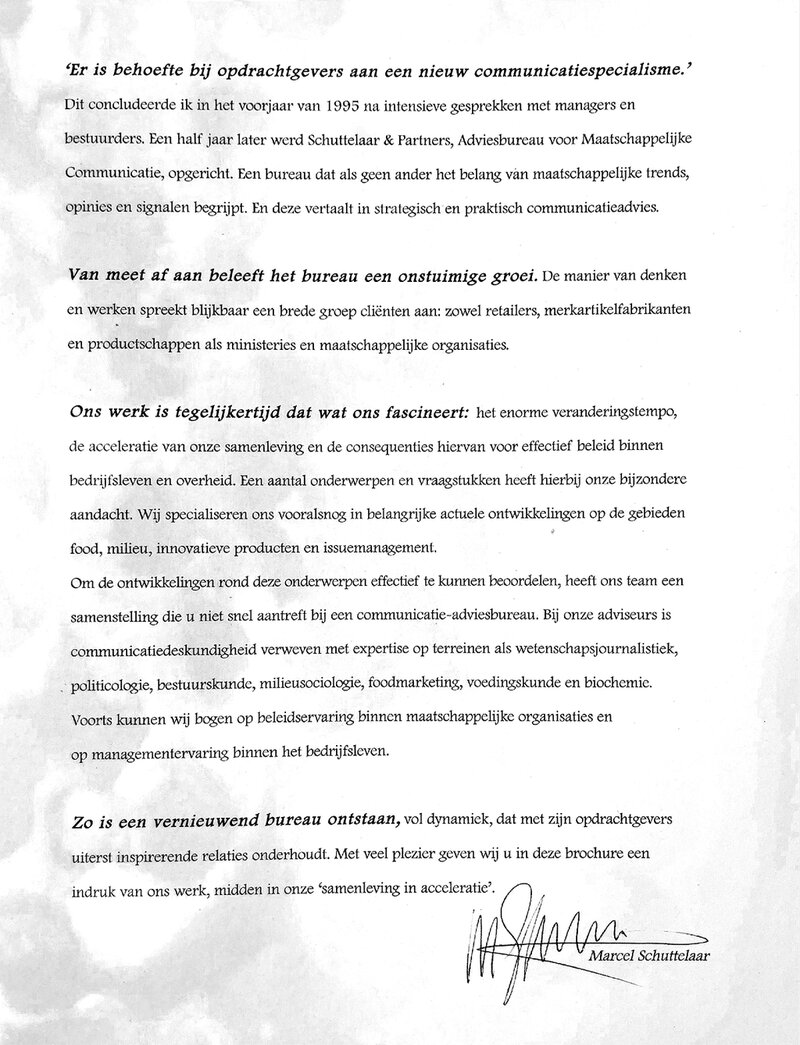30 years
Schuttelaar & Partners
Our impact
Since 1995, we have pushed and pulled numerous meaningful social transitions, ensuring that organisations remain resilient and valuable in a changing world. This has resulted in hundreds of projects to be proud of, with measurable impact and long-term results. Here is a selection from the past 30 years!
1995
The founding of
Schuttelaar & Partners
‘There is a need among clients for a new communications specialism’. This is the beginning of the manifesto “Society in acceleration” written by Marcel Schuttelaar when he founded Schuttelaar & Partners in 1995. Back then, specialising in food, environment, innovative products and issue management, and from day one it bridges the gap between expertise and communication. Collaboration was central: ‘Operating together in the rapids of our society’. This is how an innovative agency was created.
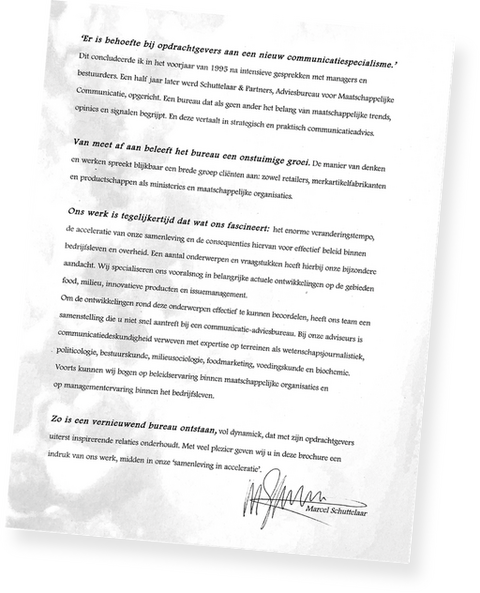
1995
Society in acceleration
“There is a need among clients for a new communication specialism”. This is the beginning of the book “Society in acceleration” that Marcel Schuttelaar wrote when Schuttelaar & Partners was founded in 1995. At that time, the company specialised in food, the environment, innovative products and issue management, and from day one, a bridge was built between expertise and communication. Collaboration is central: “Operating together in the acceleration of our society”. This is how an innovative agency was born.
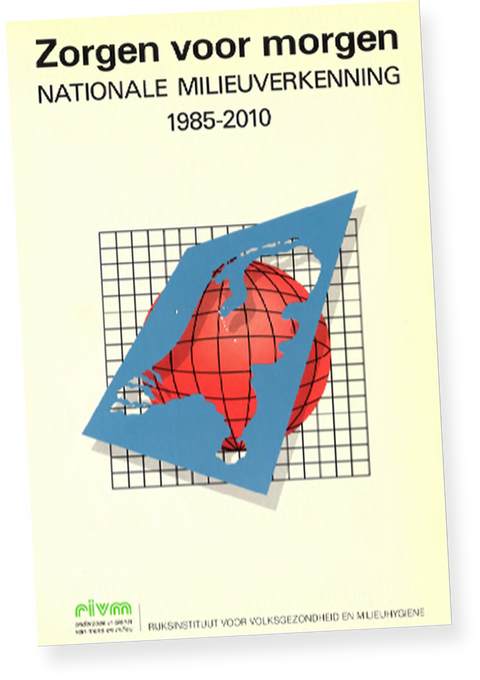
1995
Zorgen voor Morgen RIVM
In 1995, S&P contributed to the RIVM's first Zorgen voor Morgen (Concerns for Tomorrow) – the first national future study in which the various environmental problems were described in context.
1996
The start
In 1996, S&P worked with five employees on the themes of healthy nutrition, biotechnology and sustainability.
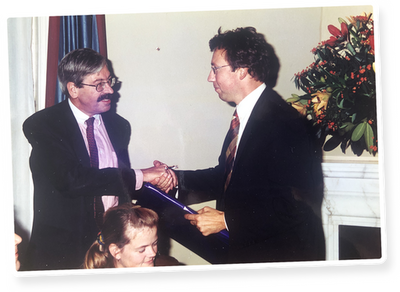
1997
Establishment of Milieu Centraal Foundation
S&P was asked to set up an independent organisation to help consumers with reliable information on the environmental impact of products and sustainable choices. The foundation was named Milieu Centraal and will be officially established on 24 September.
1998
Introduction and communication of reusable bottles with a deposit
In 1998, Campina Melkunie (predecessor of Friesland Campina) replaced traditional glass milk bottles with lightweight, reusable polycarbonate bottles with a deposit. The new bottles are unbreakable, can be reused up to thirty times and are in line with the aim of more environmentally friendly packaging. S&P supported the introduction and communication of this sustainable packaging concept.
1999
Transparent crisis communication within the food chain.
Around 1999, several food incidents occurred, such as glass shards in jars and diesel residues in palm oil. These situations required rapid recalls and clear public communication. S&P assisted the Food and Consumer Product Safety Authority (predecessor of the NVWA) in setting up a crisis plan and training spokespersons. This laid an important foundation for professional and transparent crisis communication within the food chain.
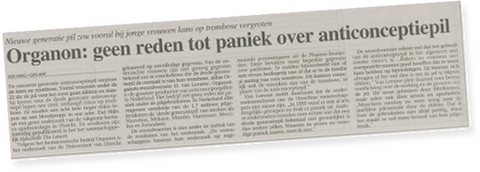
2000
Crisis communication surrounding Organon's “light pill”
In 2000, concern grew around Organon's third-generation contraceptive pills due to research showing an eightfold increase in the risk of thrombosis among young female users. Authorities warned doctors, after which Organon resorted to crisis communication: they defended the safety of the pill, pointed out that the risks were already listed in the package insert and emphasised that doctors had not changed their prescribing behaviour. Spokespersons were trained and guidelines were drawn up to prevent panic and maintain control of the communication process.
2001
Opening the Brussels Office
Since 2001, we can also be found in the heart of the European arena: Brussels. Around the corner from the European Commission, the Parliament and immense networks, this is the place to be for anyone who wants to accelerate sustainable change. Understanding Europe, knowing what is going on and actively helping build the policies of the future is the name of the game.
2002
Start of the Clean Sources project
In 2002, the Clean Sources platform was established, a collaboration between agriculture, water boards, municipalities, drinking water companies, LTO, Nefyto, RIVM, WUR and S&P. With the aim of limiting the emission of crop protection products into surface water and groundwater, national training courses, licensing requirements, guidelines and sessions for crop protection plans were developed. This approach formed the basis for national policy on the sustainable and safe use of pesticides in agriculture. S&P also produced five short films showcasing innovative solutions.
2003
Innovation at Avebe: starch and protein from potatoes
Around 2003, Avebe, the Dutch potato starch factory, started working on a new potato variety and processing techniques that would allow both starch and protein to be extracted from potatoes in a single efficient process. This made plant-based protein usable as a functional ingredient (for foaming, gelling and emulsifying) and reduced environmental pollution from waste streams. Although intensive research was still ongoing, this marked the beginning of Avebe's transition to a sustainable, GMO-free protein-producing organisation, making full use of the potato.
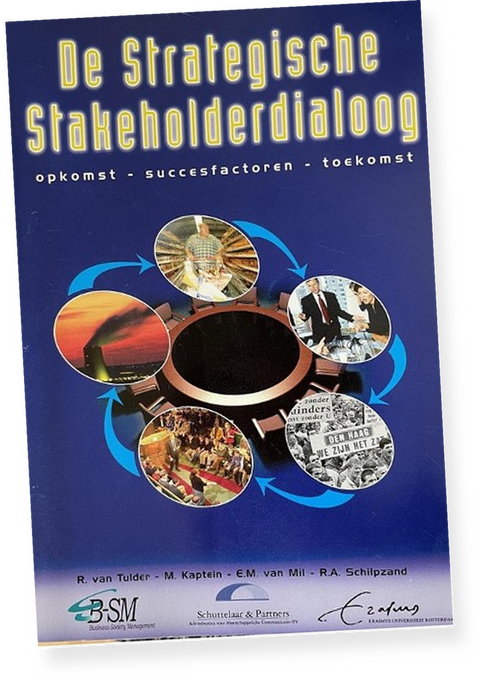
2004
Publication of ‘De Strategische Stakeholderdialoog’
In 2004, the book De Strategische Stakeholderdialoog (The Strategic Stakeholder Dialogue) was published, in which S&P contributed to the development and sharing of knowledge about the structural involvement of stakeholders in business strategy. The publication offers companies practical tools and a theoretical basis for engaging in constructive dialogue with stakeholders.
2005
Launch of the Schoolfeeding Initiative signature
Around 2005, the Schoolfeeding Initiative Ghana-Netherlands was launched, a public-private partnership led by WUR and the Dutch Ministry, with support from organisations such as Unilever, SNV, DSM, AkzoNobel and S&P. The aim is to make a structural contribution to education and health through locally produced and nutritious school meals.
2006
Relocation to Zeestraat
Around 2006, major structural changes took place, leading S&P to relocate its office to Zeestraat.
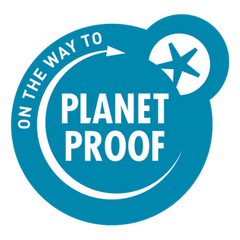
2007
From Stichting Weidgang to Planet Proof
In 2007, the Weidgang Foundation was established by Friesland Foods, Albert Heijn, Rabobank, Natuurmonumenten and others, with the aim of promoting cows in pastures through a quality mark and farmer training. S&P was involved from the start, led the social dialogue on grazing versus indoor housing, and developed the foundation's corporate identity. In the years that followed, the commitment to grazing was continued within the broader sustainability quality mark On the way to PlanetProof, where grazing has been a mandatory component since 2017.
2008
Launch of Heinz's “Power of Tomato” campaign and sustainability report
Heinz's “Power of Tomato” campaign focuses on the health benefits of lycopene from tomatoes (particularly concentrated in ketchup). Heinz communicates scientific research showing that lycopene can contribute to reducing the risk of chronic diseases. In their first sustainability report, Heinz presents their sustainability missions, such as reducing water consumption in tomato cultivation. This combination of health and environmental communication marks the beginning of a renewed CSR strategy at Heinz.
2009
First CSR report – on to 250+ reports
With a print run of 600,000 copies, Albert Heijn launched its first accessible Corporate Social Responsibility report in 2008, developed in collaboration with S&P. The report is intended for a wide audience: from cashiers to board members. It provides clear information about Albert Heijn's sustainability ambitions, pillars and concrete actions, and marks an important step towards transparent communication about corporate social responsibility in the retail sector.
2010
Opening the Wageningen Office
In 2010, we opened an offi ce in Wageningen, in the middle of the Food Valley. Here we are literally among farmers, researchers and sustainable pioneers. Ideal for everything that touches on agriculture, biodiversity, nutrition and health. Wageningen is where we translate today’s cutting-edge knowledge into tomorrow’s practice.
2010
Acquisition of De Rotterdamse and launch of Healthy World Cooperation
In 2010, the partners of S&P acquired the creative agency De Rotterdamse and H5mag, bringing extra focus to design and digital storytelling. This made interactive content more accessible and visually appealing.
In the same year, the Healthy World Cooperation was founded: a cooperative of partners working together towards a healthier and more sustainable world.
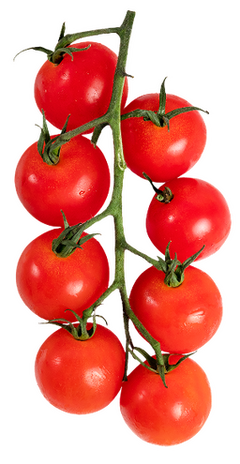
2011
New Breeding Techniques for Plants
The New Breeding Techniques for Plants Platform is launched and, under the guidance of S&P, will serve as a central point for providing knowledge
about new breeding techniques. Together with scientifi c institutions and companies, a great deal of work will be carried out over a period of seven years. By organising workshops for the European Commission and 15 member states, we are actively contributing to a fact-based and transparent policy agenda for the future of breeding in Europe.
2012
Fairtrade bananas as the new standard at PLUS
In 2012, PLUS took a significant step forward in its sustainability policy by positioning Fairtrade bananas as the “new normal”. Since 2010, the supermarket chain has been selling exclusively Max Havelaar-certified bananas, and from 2012 onwards, this has been widely promoted through campaigns. Schuttelaar & Partners has played a central role in the development of PLUS' CSR policy from the outset, with pillars such as organic, packaging, climate, food waste and local involvement.
2013
Crisis puts brakes on sustainabile thinking and launch of food coalitions
In 2013, the financial crisis puts sustainability under pressure due to cost-cutting measures, but there is a growing awareness that change is necessary. S&P, together with caterer Albron, takes the initiative to bring various food activists, companies and innovators to the table. These discussions lead to the formation of coalitions that jointly strive for a more sustainable and healthier food system.
2014
Establishment of North Sea Farmers
In 2014, the North Sea Farmers foundation was established by Marcel Schuttelaar, Job Schipper (Hortimare), Eef Brouwers and Marlies Draisma. The foundation focuses on realising sustainable seaweed cultivation in the North Sea, with the aim of contributing to a circular and biobased economy.
2015
Establishment of the JOGG Foundation
Since its establishment in 2015, Schuttelaar & Partners has been supporting the JOGG Foundation (Jongeren Op Gezond Gewicht, or Young People at a Healthy Weight) with communication, policy advice and implementation. JOGG brings together municipalities, schools, businesses and sports clubs to help children grow up healthier. S&P assists with setting up local approaches, interpreting relevant data, and organising meetings among other things.
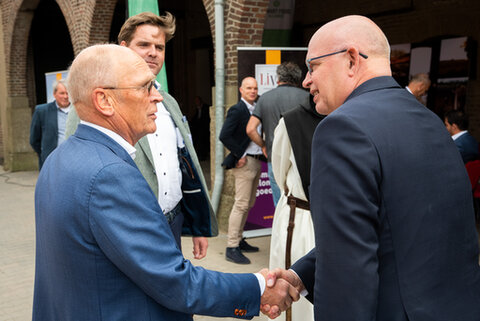
2016
Establishment of Smart Food Alliance
In 2016, S&P initiated the Smart Food Alliance, a collaboration of approximately 50 medium-sized food companies with a clear green-healthy ambition. It is a knowledge and inspiration platform where members such as producers, seed distributors, meat, dairy and vegetable companies come together. They exchange practical experiences, form policy coalitions, and collaborate on innovative projects such as making packaging more sustainable and reducing food waste.
2017
North Sea fish from Scheveningen on the menu
Establishment of the North Sea Fish from Scheveningen Foundation. S&P built community and raises awareness of local fish.
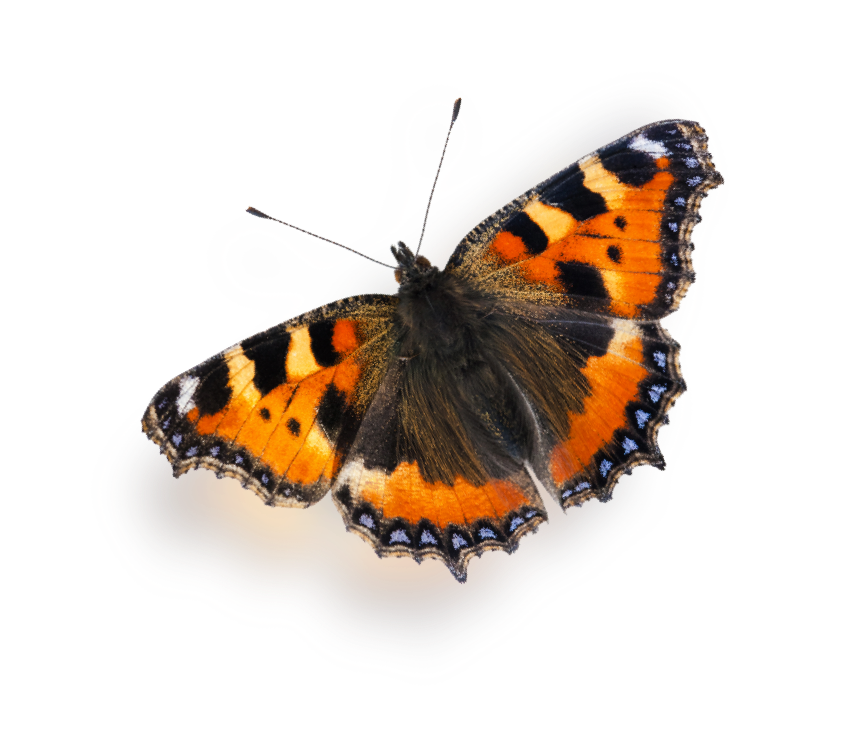
2018
Establishment of the Delta Plan for Biodiversity Recovery
In 2018, S&P, in its role as programme agency, launched the Delta Plan for Biodiversity Recovery as a broad coalition of farmers, nature organisations, knowledge institutions, businesses and government bodies. S&P facilitated cooperation with nearly 200 partners and supporters, including land managers, researchers and government bodies. Together, they are working on concrete measures and revenue models for restoring biodiversity in agriculture, nature and the living environment, with a focus on monitoring, communication and systemic change.
2018
The Hague Energy Summit
Commissioned by the municipality of The Hague, S&P organised the Hague Energy Summit, where 19 public and private parties committed to making 25,000 homes more sustainable. To engage and inspire residents, the Hague Energy Safari was also set up: at 15 locations, residents were introduced to sustainable energy generation and local initiatives. S&P also developed the communication strategy and helped to make the complex story of the energy transition understandable and inspiring.
2019
Plant-based inspiration for Flora Food Group
Since 2019, Schuttelaar & Partners has developed more than 100 plant-based recipes for the Flora Food Group brands (including Becel, Blue Band and Flora), targeting a wide range of audiences. The recipes are intended to inspire people to choose plant-based products more often in their daily cooking.

2020
Sustainable dairy packaging – design as a driver for behavioural change
In collaboration with dairy packaging manufacturers and the supermarket sector, S&P committed to improving the public perception of dairy packaging. With a focus on design and communication, the iconic and likeable character “Pakman” is introduced, explaining how sustainable materials, smart fold lines and recycling contribute to less waste. The campaign combined TV commercials, social media, educational competitions and infographics into a recognisable and long-term public approach.
2021
Plastic Pact NL – collaboration for less plastic and more circularity
The Plastic Pact NL is a collaboration between government, businesses and civil society organisations to reduce plastic use, encourage reuse, and increase the use of recycled materials. S&P played a key role in communication and community building. They developed a recognisable corporate identity, an interactive platform, and organised meetings, newsletters, and inspiring events. Thanks to this structure, valuable collaborations and new initiatives emerged within the plastics transition.
2022
Fairtrade's Theory of Change comes to life in interactive tool
Fairtrade strives for fair trade worldwide for more than 1.9 million farmers and workers. To provide stakeholders with insight into their working methods and impact, S&P developed an interactive Theory of Change. The tool shows in an accessible way how interventions such as climate courses and leadership training contribute to sustainable change.
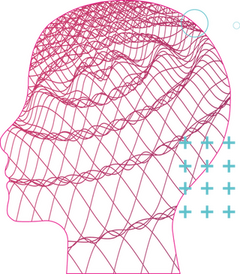
2022
Working together to improve access to orphan drugs
Orphan drugs are medicines developed for rare diseases. The Innovative Medicines Association asked S&P to broaden the discussion on these drugs and provide the field with concrete tools. S&P facilitated working and action groups with 50 experts from care, policy, science and patient organisations to identify bottlenecks and opportunities. The result: an online roadmap for better access to orphan drugs, and a menu for alternative reimbursement models.
2024
Basic Quality Nature – national meeting on nature as a foundation
In May 2024, S&P brought together more than 200 professionals from government, nature and farming organisations to share knowledge and experience about Basic Quality Nature in the Netherlands. During this event, the importance of soil, air, water and habitat as the basis for general species will be central.
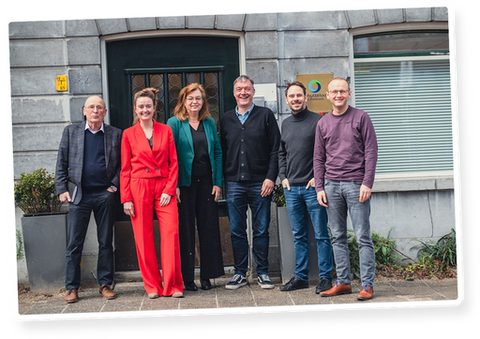
2025
Acquisition of Green Food Lab and launch of Concept & Communication Studio
In early 2025, Green Food Lab will join S&P, combining the agencies' expertise in strategy, communication, nutrition, health and sustainability. Isabel Boerdam will join as a partner and will be responsible for the Concept & Communication Studio.
2026
Building the future together
Thirty years of making an impact is just the beginning. The world is changing rapidly - and demands vision, courage, and collaboration. Whether you are working on healthy food, sustainable chains, or social change, we are ready to make a difference together with you. What will be your contribution to the next milestone?
Working together to create impact
